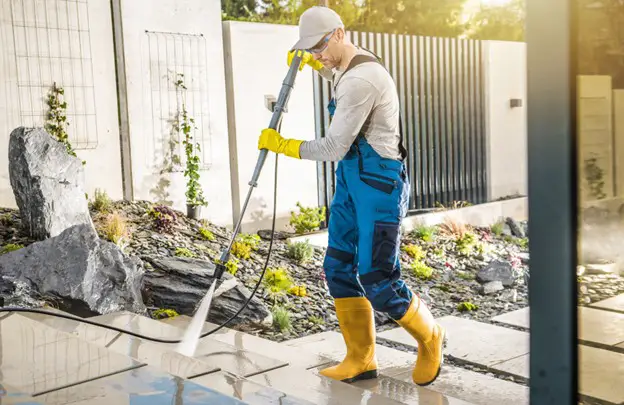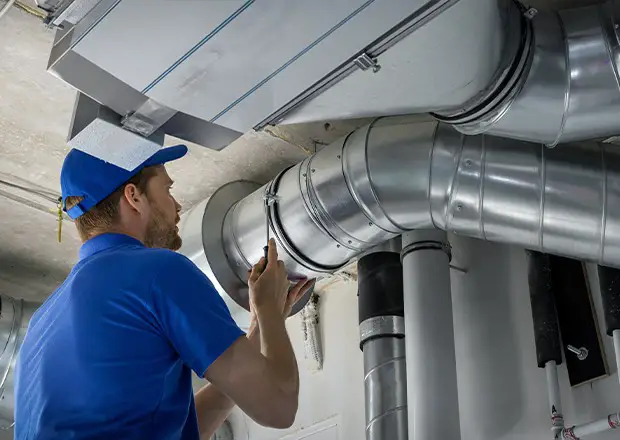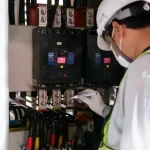Structural integrity: Best practices for commercial maintenance, commercial buildings guide, Property security advice
Structural Integrity: Best Practices for Commercial Maintenance
24 Sep 2023
In the booming commercial property industry, maintaining a property’s structural integrity isn’t just essential for safety reasons – it also has direct implications for property value and tenant satisfaction.
Whether you’re a property owner or a property manager, it’s crucial to implement best practices that ensure the longevity of your property.
This guide will provide comprehensive insights into managing commercial property with an emphasis on safeguarding its structural integrity.
Key Points
- Regular maintenance inspections are crucial to address potential issues promptly, ensuring the building’s condition and functionality.
- Partnering with experienced service providers can provide high-quality maintenance and prevent costly breakdowns in the future.
- Effective communication channels for issue reporting are vital for maintaining the condition of your commercial property.
- Creating a property maintenance fund safeguards against unexpected expenses and ensures the availability of funds for emergencies.
- Incorporating sustainability practices can attract a broader range of tenants, conserve the environment, and potentially lead to long-term cost savings.
Regular Maintenance Inspections
You should prioritize regular maintenance inspections to proactively manage and address any small-scale issues developing in your commercial property. These inspections are crucial for staying on top of the building’s condition and ensuring the functionality of its amenities.
Conducting regular checks can identify and address wear and tear, damage, and safety hazards before they become larger and costlier problems.
Make sure to review the building’s façade and exterior for cracks and leaks, check lighting, parking lot, and signs, inspect landscaping for overgrowth or dead limbs, and test and maintain fire extinguishers, exit signs, emergency doors, and staircases.
Not only to comply with the law, but for the peace of mind of your employees, it’s vital to ensure your fire doors are inspected by experts, maintained, and upgraded with new installations when deemed necessary.
Additionally, it’s important to have an understanding of who’s responsible for maintenance in common areas or mixed-use spaces. If you’re unsure how to keep up with inspections, consider working with a property manager to establish a schedule.
Partnering With Service Providers
To ensure the highest quality maintenance for your commercial property, consider partnering with service providers who specialize in areas such as commercial mold removal, HVAC, plumbing, and electrical systems.
These professionals have the expertise and knowledge to keep your major systems running smoothly and efficiently.
By working with service providers who are experienced in commercial maintenance, you can ensure that any issues or repairs are handled promptly and effectively. This partnership will save you time and effort and help prevent costly breakdowns and repairs in the future.
With their specialized skills and resources, these service providers will be able to provide the necessary maintenance and repairs to keep your property in excellent condition, allowing you to focus on other aspects of your business.
Effective Communication Channels for Issue Reporting
Make sure to use platforms where tenants can easily report issues and provide detailed descriptions and images, as well as communicate promptly and effectively. This is crucial for maintaining the condition of your commercial property and addressing any problems that arise.
To effectively communicate with your tenants, consider the following:
- Encourage tenants to report issues quickly and effectively, even if they’re unsure if it’s necessary
- Use technology that allows tenants to upload images and provide detailed descriptions
- Promptly respond to tenant inquiries and keep them informed of any progress or resolutions
- Establish a system for tracking and managing tenant issues to ensure timely resolution
Creating a Property Maintenance Fund
Consider creating a property maintenance fund to ensure that you have the necessary funds for emergencies or breakdowns of major systems.
Having a buffer in case of unexpected issues can provide peace of mind and help you avoid financial strain. Start by setting aside a portion of the monthly rent to contribute to this fund.
It’s a good idea to itemize all internal and external systems, assign a timeframe for regular maintenance, and calculate the average cost for ongoing upkeep.
By deducting this amount from your monthly cash flow, you can ensure that you have enough funds to cover maintenance expenses.
Additionally, partnering with a commercial property management company can provide valuable insights into overall costs and help you maintain your budget effectively.
Taking proactive steps like creating a property maintenance fund can protect your investment and ensure the long-term success of your property.
Incorporating Sustainability Practices
By implementing sustainable practices in your commercial property, you can contribute to environmental conservation and potentially attract a wider range of tenants who value sustainability.
Here are five ways you can incorporate sustainability practices:
- Install energy-efficient lighting to reduce electricity consumption.
- Implement waste management strategies to minimize landfill waste.
- Use environmentally friendly cleaning products to reduce chemical pollution.
- Incorporate smart technology to monitor and optimize energy usage.
- Consider renewable energy sources, such as solar panels, to reduce reliance on traditional power grids.
Not only will these practices benefit the environment, but they can also lead to cost savings in the long run.
Final Takeaway
Maintaining a commercial property can be an extensive task requiring constant vigilance and proactive planning. However, with a clear understanding of the methods and practices explained above, you can effectively manage your property while ensuring its structural integrity.
Remember, a well-maintained property not only attracts and retains tenants but also protects and increases the value of your investment in case you’re planning on listing your property.
Don’t overlook the importance of regular checks, professional partnerships, effective communication, adequate financial planning, and sustainable practices.
By instilling these habits, you’re on your way to successful property management, contributing to the overall health of your commercial property.
FAQs
Q: What is the importance of periodic HVAC system maintenance in a commercial property?
Regular HVAC system maintenance is crucial to ensure its optimal performance, enhance its lifespan, and prevent breakdowns that could lead to uncomfortable temperatures and potentially significant repair costs.
Q: Which areas are most prone to damage or wear and tear in a commercial building?
Common areas for damage or wear and tear in commercial buildings include the roof, plumbing systems, HVAC systems, and areas that experience heavy foot traffic like entrances, exits, and staircases.
Q: How does mold remediation work in commercial properties?
Mold remediation involves assessing the extent of mold growth, containing it to prevent further spread, eliminating the mold using specialized equipment and solutions, and finally, restoring the area to its original state. It’s essential to address water or moisture issues, the root cause of most mold problems, to prevent recurrence.
Q: How can I evaluate whether a service provider is apt for maintaining my commercial property?
Evaluating a potential service provider can include checking their credentials and licenses, reviewing customer testimonials or reviews, assessing their experience in commercial property maintenance, and checking whether they provide a comprehensive range of services that match your property’s needs.
Q: What factors should I consider when setting up a property maintenance fund?
When setting up a property maintenance fund, consider the age and condition of your property, the frequency and cost of required maintenance tasks, potential replacement or repair costs of major systems, and an allowance for unexpected emergencies.
Comments on this Structural Integrity: Best Practices for Commercial Maintenance article are welcome.
Buildings
Key Buildings in Scotland Articles – architectural design selection below:
Historic Glasgow : best Glasgow architecture of the past
Comments / photos for the Structural Integrity: Best Practices for Commercial Maintenance page welcome





